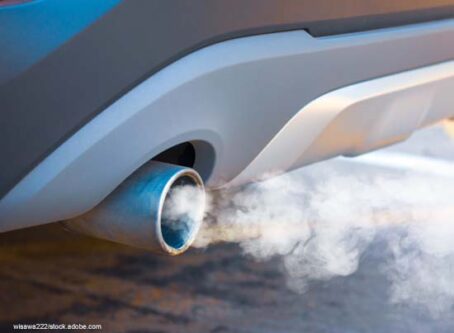CRST, EEOC settle case alleging veteran not hired because of service dog
CRST International and the Equal Employment Opportunity Commission have agreed to settle a 2-year-old lawsuit that accused the trucking company of refusing to hire a military veteran because of his request to drive with a service dog.
As part of the settlement filed in the U.S. District Court for the Northern District of Iowa on Tuesday, March 5, CRST must pay truck driver Leon Laferriere $47,500 for back wages and compensatory damages.
In addition, all of CRST’s supervisory, managerial, human resources, recruiting and training employees will be required to participate in a training session regarding the obligations of employers and rights of employees and applicants under the Americans with Disabilities Act at least once a year for the next two years. Specifically, the training will educate CRST employees on the obligation to provide reasonable accommodations. The EEOC must approve of the trainer.
CRST also must make it known to its employees that the company will provide reasonable accommodation to all qualified employees and will not retaliate against anyone for making a report or complaint about unlawful employment discrimination or harassment.
Under the terms of the settlement, CRST and EEOC will pay their own attorney fees and court costs. The settlement doesn’t equal an admission of guilt.
On March 2, 2017, the EEOC filed a complaint in a Florida federal court saying that CRST rescinded its offer to hire Laferriere in June 2015 after he made several requests to let him break the company’s “no pet” policy and let him use a service dog as an accommodation for his post-traumatic stress and mood disorders.
According to the complaint, Laferriere’s psychiatrist prescribed him an emotional support/service animal to assist him in coping with his disabilities. However, Laferriere claimed that a CRST manager and recruiter pressured him to leave his dog at home. Soon after, Laferriere was allegedly told he could not drive with his service dog because of company policies, and his offer of employment was eventually rescinded.
“CRST’s refusal to accommodate Mr. Laferriere is an example of the hardships that returning veterans with disabilities can face as they seek to reintegrate into civilian life,” Jean Kamp, an EEOC attorney, said in a news release in 2017. “Those challenges are hard enough without an employer denying someone a job simply because he needs a service dog, as so many do.”
Cedar Rapids, Iowa-based CRST denied the allegations and requested for the case to be moved to Iowa. The trucking company said Laferriere didn’t provide it with a letter from his doctor prescribing that he needed the dog in the truck for emotional support.









